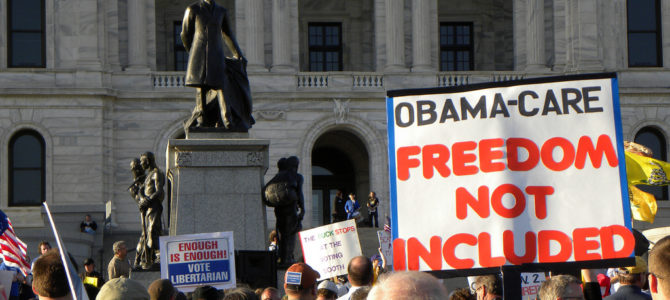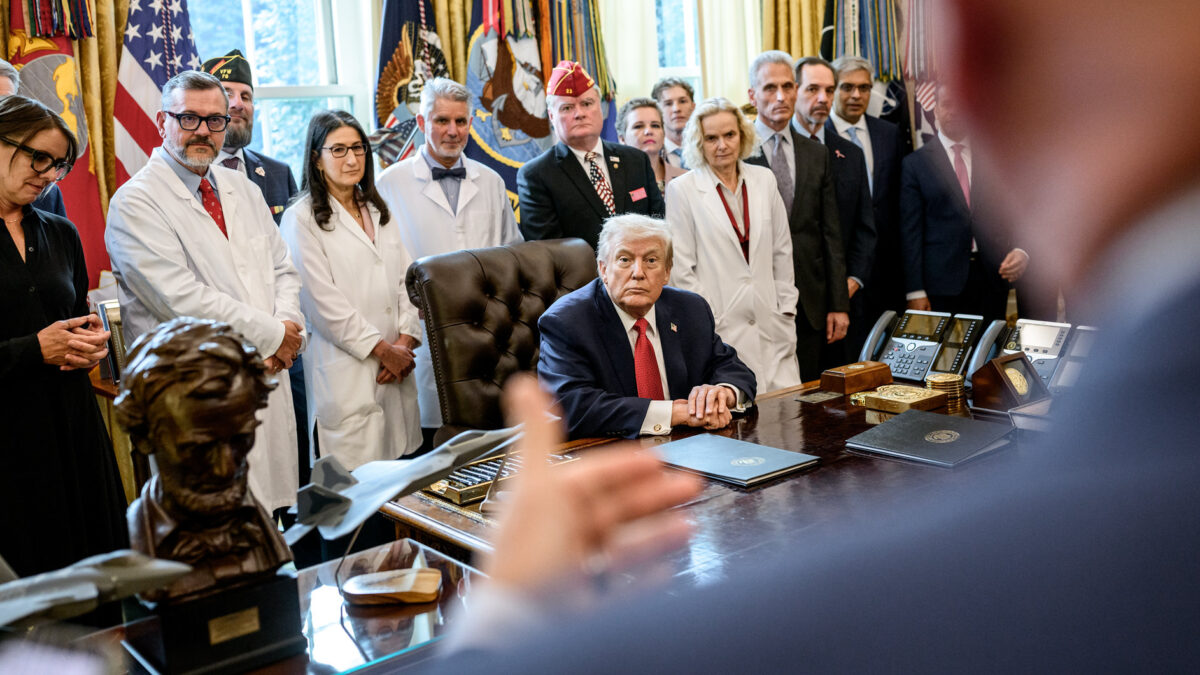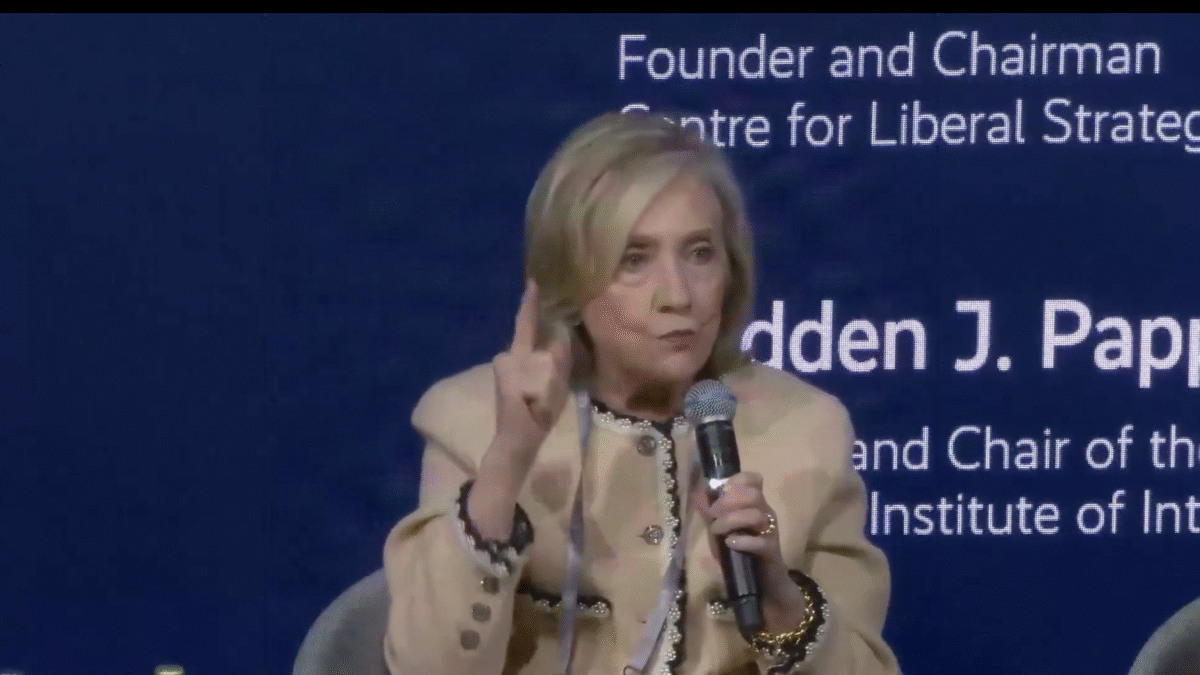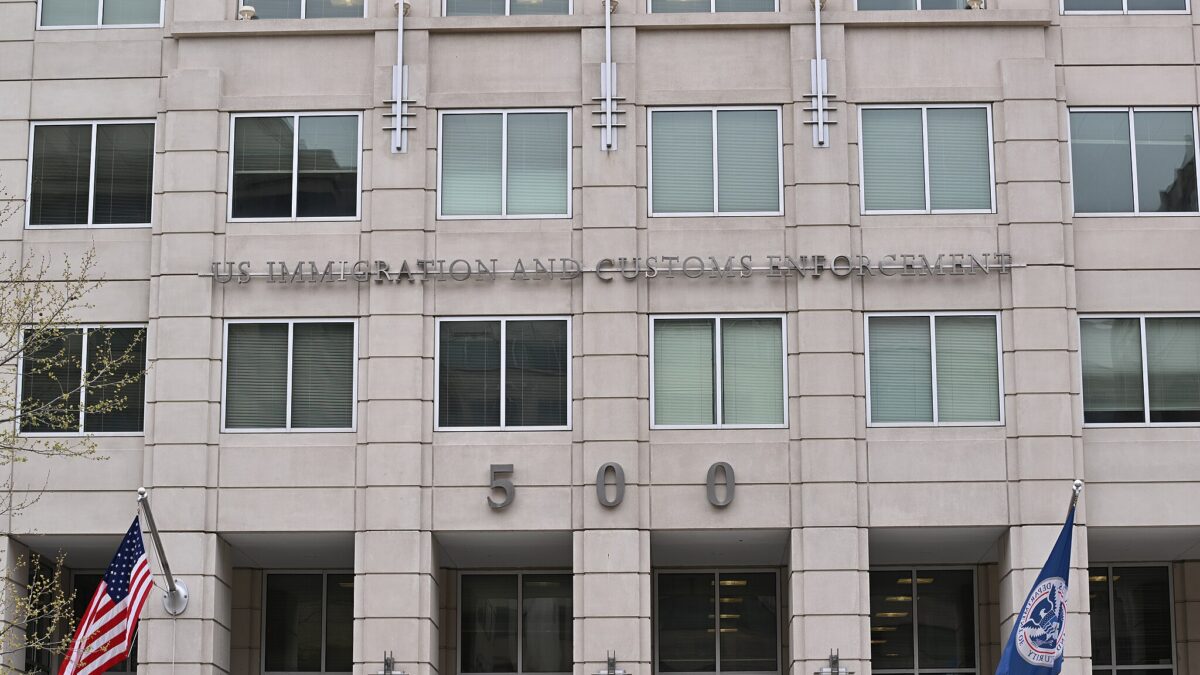
Last summer, I wrote about how President Trump had created the worst of all possible outcomes regarding one Obamacare program. In threatening to cancel cost-sharing reduction payments to insurers, but not actually doing so, the administration forced insurers into raising premiums, while not complying with the rule of law by cutting off the payments outright.
Eventually, the administration finally did cut off the payments in October, but for several months, the uncertainty represented a self-inflicted wound. So too a brief filed by the Department of Justice (DOJ) late last week regarding an Obamacare lawsuit several states brought in February, which asked the court to strike down both Obamacare’s individual mandate and the most important of its federally imposed insurance regulations.
DOJ’s action represented the right policy outcome, but in the wrong venue—because Congress and not the courts have proper jurisdiction to strike down the structure of the law. In the days since, the DOJ filing has drawn criticism from conservatives worried that it undermines the rule of law, from liberals who want to preserve Obamacare’s “consumer protections,” and from Republican lawmakers desperate to avoid the issue becoming a political football in November. (Too late.)
It takes a very unique set of circumstances to arrive at this level of opposition. Herewith the policy, legal, and political implications of DOJ’s actions.
Let’s Talk Policy First
Strictly as a policy matter, I agree with the general tenor of the Justice Department’s proposals. Last April, I analyzed Obamacare’s four major federally imposed insurance regulations:
- Guaranteed issue—accepting all applicants, regardless of health status;
- Community rating—charging all applicants the same premiums, regardless of health status;
- Essential health benefits—requiring plans to cover certain types of services; and
- Actuarial value—requiring plans to cover a certain percentage of each service.
I concluded that these four regulations represented a binary choice for policymakers: Either Congress should repeal them all, and allow insurers to price individuals’ health risk accordingly, or leave them all in place. Picking and choosing would likely result in unintended consequences.
For instance, repealing essential benefits while leaving the other requirements in place would encourage insurers to discriminate against the sick by tailoring their benefits—a plan might not cover chemotherapy, so patients with cancer would not want to enroll in that plan.
The Justice Department’s brief asks the federal court to strike down the first two federal regulations, but not the last two. This outcome could have some unintended consequences, as a New York Times analysis notes.
But repealing the guaranteed issue and community rating regulations would remove the prime driver of premium increases under Obamacare. Those two regulations led rates for individual coverage to more than double from 2013 to 2017, necessitating the requirement for individuals to purchase, and employers to offer, health coverage, the subsidies to make coverage more “affordable,” and the tax increases and Medicare reductions used to fund them.
I noted last April that Republicans have a choice: They can either keep the status quo on pre-existing conditions or they can fulfill their promise to repeal Obamacare. They cannot do both. The DOJ brief acknowledges this dilemma, and that the regulations represent the heart of the Obamacare scheme.
Legal Question 1: Constitutionality
Both the plaintiff states’ original complaint in the lawsuit and last week’s Justice Department brief cite Supreme Court Chief Justice John Roberts’ controlling opinion in the 2012 Supreme Court case of NFIB v. Sebelius. Roberts famously held that Obamacare’s individual mandate functions as a tax, despite language in the law itself calling the mandate a “penalty” and not a tax.
Roberts held that, while the federal government did not have the power to compel individuals to purchase health coverage under the Constitution’s Commerce Clause, Congress did have the power to impose a tax penalty on the non-purchase of coverage, and upheld the individual mandate on that basis.
But late last year, Congress set the mandate penalty to zero, with the provision taking effect next January. Both the plaintiff states and DOJ argue that, because the mandate will not generate revenue for the federal government beyond 2019, it can no longer function as a tax, and should be struck down as unconstitutional.
Ironically, if Congress took an unconstitutional act in setting the mandate penalty to zero, few seem to have spent little time arguing as much prior to the tax bill’s enactment last December. I opposed Congress’ action at the time, because I thought Congress needed to repeal more of Obamacare—i.e., the regulations discussed above. But few raised any concerns that setting the mandate penalty to zero represented an unconstitutional act:
- While one school of thought suggests presidents should not sign unconstitutional legislation, President Trump signed the tax bill into law.
- Likewise, President Trump did not issue a signing statement about the tax bill, seemingly indicating that the Trump administration had no concerns about the bill, constitutional or otherwise.
- While in 2009 the Senate took a separate vote on the constitutionality of Obamacare, no one raised such a point of order during the Senate’s debate on the tax bill.
- I used to work for one of the plaintiffs in the states’ lawsuit, the Texas Public Policy Foundation. TPPF put out no statement challenging the constitutionality of Congress’ move in the tax bill.
The president of course takes an oath to “preserve, protect, and defend the Constitution,” while members of Congress take an oath to “support and defend the Constitution.” In this case, it appears that many either did not ponder the constitutional applications of Congress’ action until after the law passed—or, worse yet, wanted Congress to take a potentially unconstitutional act regarding Obamacare’s individual mandate, in the hopes that the courts would use it to strike down the rest of the law.
Legal Question 2: Severability
As others have noted, a court decision striking down the individual mandate as unconstitutional would by itself have few practical ramifications, given that Congress already set the mandate penalty to zero, beginning in January. The major fight lies in severability—either striking down the entire law, as the states request, or striking down the two major federal insurance regulations, as the Justice Department suggested last week.
The DOJ brief and the states’ original complaint both cite Section 1501(a) of Obamacare in making their claims to strike down more than just the mandate. DOJ cited that section—which called the mandate “essential to creating effective health insurance markets”—13 times in a 21-page brief, while the states cited that section 18 times in a 33-page complaint.
But that claim fails, for several reasons. First, the list of findings in Section 1501(a)(2) of the law discusses the mandate’s “effects on the national economy and interstate commerce.” In other words, this section of findings attempted to defend the individual mandate as a constitutional exercise of Congress’ power under the Commerce Clause—an argument Roberts struck down in the NFIB v. Sebelius ruling six years ago.
re
Second, the plaintiffs and the Justice Department briefs focus more on what a Congress eight years ago said—i.e., their non-binding findings to defend the individual mandate under the Commerce Clause—than what the current Congress did when it set the mandate penalty to zero, but left the rest of Obamacare intact. The Justice Department tried to retain a fig leaf of consistency by taking the same position regarding severability that the Obama administration did before the Supreme Court in 2012: that if the mandate falls, the guaranteed issue and community rating provisions (and only those provisions) should as well.
However, the Justice Department’s brief all but ignores Congress’s intervention last year. In a letter to Speaker of the House Paul Ryan (R-WI) regarding the lawsuit, Attorney General Jeff Sessions noted that “We presume that Congress legislates with knowledge of the [Supreme] Court’s findings.” A corollary to that maxim should find that the administration takes decisions with knowledge of Congress’ actions.
But rather than observing how this Congress zeroed out the mandate penalty while leaving the rest of Obamacare intact, DOJ claimed that the 2010 findings should control, because Congress did not repeal them. (Due to procedural concerns surrounding budget reconciliation, Senate Republicans arguably could not have repealed them in last year’s tax bill even if they wanted to.)
Third, as the brief by a series of Democratic state attorneys general—who received permission to intervene in the case—makes plain, Republican members of Congress said repeatedly during the tax bill debate last year that they were not changing any other part of the law. For instance, during the Senate Finance Committee markup of the tax bill, the committee’s chairman, Orrin Hatch (R-UT), said the following:
Let us be clear, repealing the [mandate] tax does not take anyone’s health insurance away. No one would lose access to coverage or subsidies that help them pay for coverage unless they chose not to enroll in health coverage once the penalty for doing so is no longer in effect. No one would be kicked off of Medicare. No one would lose insurance they are currently getting from insurance carriers. Nothing—nothing—in the modified mark impacts Obamacare policies like coverage for preexisting conditions or restrictions against lifetime limits on coverage….
The bill does nothing to alter Title 1 of Obamacare, which includes all of the insurance mandates and requirements related to preexisting conditions and essential health benefits.
As noted above, I want Congress to repeal more of Obamacare—all of it, in fact. But what I want to happen and what Congress did are two different things. When Congress explicitly set the mandate penalty to zero but left the rest of the law intact, I should not (and will not) go running to an activist judge trying to get him or her to ignore the will of Congress and strike all of it down regardless. That’s what liberals do.
Too Cute by Half Problem 1: Legal Outcomes
The brief the Democratic attorneys general filed suggested another possible outcome—one that would not please the plaintiffs in the lawsuit. While the attorneys general attempted to defend the mandate’s constitutionality despite the impending loss of the tax penalty, they offered another solution should the court find the revised mandate unconstitutional:
Under long-standing principles of statutory construction, when a legislature purports to amend an existing statute in a way that would render the statute (or part of the statute) unconstitutional, the amendment is void, and the statute continues to operate as it did before the invalid amendment was enacted. (Emphasis in the original.)
It remains to be seen whether the courts will find this argument credible. But if they do, a lawsuit seeking to strike down all of Obamacare could actually restore part of it, by getting the court to reinstate the tax penalties associated with the mandate.
This scenario could get worse. In 2015, the Senate parliamentarian offered guidance that Congress could set the mandate penalty to zero, but not repeal it outright, as part of a budget reconciliation bill. Republicans used this precedent to zero-out the mandate in last year’s tax bill. But a court ruling stating that Congress cannot constitutionally set the mandate penalty to zero, and must instead repeal it outright, means Senate Republicans would have to muster 60 votes to do so—an outcome meaning the mandate might never get repealed.
In June 2015, the Supreme Court issued a ruling in the case of King v. Burwell. In its opinion, the court ruled that individuals in states that did not establish their own exchanges (and used the federally run healthcare.gov instead) could qualify for health insurance subsidies. By codifying an ambiguity in the Obamacare statute in favor of the subsidies, the court’s ruling prevented the Trump administration from later taking executive action to block those subsidies.
In King v. Burwell, litigating over uncertainty in Obamacare ended up precluding a future administration from taking action to dismantle it. The same thing could happen with this newest lawsuit.
Too Cute by Half Problem 2: Legislative Action
Sooner or later, someone will recognize an easy solution exists that would solve both the problem of constitutionality and severability: Congress passing legislation to repeal the mandate outright, after the tax bill set the penalty to zero. But this scenario could lead to all sorts of inconsistent, yet politically convenient, outcomes:
- Democrats attacking Republicans over last week’s DOJ brief might oppose repealing a (now-defanged) individual mandate, because it would remove what they view as a powerful political issue heading into November’s midterm elections;
- Republicans afraid of Democrats’ political attacks might say they repealed a part of Obamacare (i.e., the individual mandate) outright to “protect” the rest of Obamacare (i.e., the federal regulations and other assorted components of the law) from being struck down by an activist judge; and
- Some on the Right might oppose Congress taking action to repeal “just” the individual mandate, because they want the courts to strike down the entire law—even though such a job rightly lies within Congress’ purview.
As others have noted, these contortionistic, “Through the Looking Glass” scenarios speak volumes about the tortured basis for this lawsuit. The Trump administration should spend less time writing briefs that support legislating from the bench by unelected judges, and more time working with Congress to do its job and repeal the law itself.









